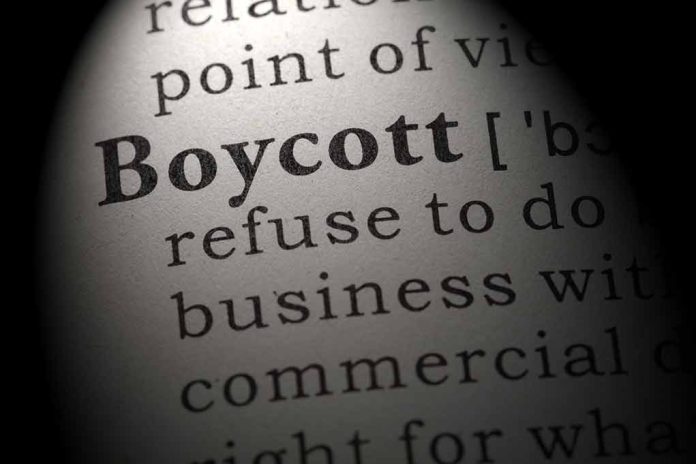
Danish consumers are leading a growing European movement to boycott American products as tensions rise over President Trump’s controversial statements about acquiring Greenland, a territory of Denmark.
Top Takeaways
- Danish consumers have launched a boycott of American products following President Trump’s contentious remarks about acquiring Greenland.
- Online boycott groups have gained significant traction, with one Danish Facebook group amassing over 80,000 members.
- European retailers are responding by highlighting locally-made products, with Denmark’s Salling Group introducing special labels for European items.
- The boycott movement has spread to other European countries, particularly France, creating a broader pushback against American products.
- While the economic impact may be limited, experts view the boycott as a symbolic gesture with potential psychological effects.
Denmark Takes a Stand
The protest movement gained momentum after President Trump’s statements regarding Greenland, which many Danes viewed as a threat to their sovereignty. Danish school principal Bo Albertus was one of many citizens who took immediate action. “When Trump went on television and said he would by political force or military force take a piece of the Danish kingdom, it was just too much for me,” Albertus explained, exemplifying the sentiment that has fueled this consumer revolt.
There is a growing movement across Europe and Canada to boycott U.S. products. Feelings are especially strong across the Nordic region — and very possibly strongest in Denmark given President Trump’s threats to seize Greenland.https://t.co/MmydJZ5RY0
— PBS News (@NewsHour) March 17, 2025
The Facebook group “Boykot varer fra USA” (Boycott goods from the USA) has become a central platform for Danes seeking alternatives to American products. With more than 80,000 members, the group serves as a resource where citizens share tips on European substitutes for everyday American items.
Retailers Respond to Consumer Demand
Danish businesses are taking notice of this shift in consumer preferences. The Salling Group, a major Danish retailer, has introduced special labels to highlight European-made products in their stores. While maintaining a neutral stance, Salling Group CEO Anders Hagh acknowledged the movement, saying, “Our stores will continue to have brands on the shelves from all over the world, and it will always be up to customers to choose.”
Michael Ramgil Stæhr, another Danish citizen participating in the boycott, canceled a planned trip to the United States and has begun carefully selecting Danish alternatives to American products. This type of individual action represents how personal consumer choices are becoming political statements across Europe. Google Trends data shows significant spikes in searches for “Boycott USA” and “Boycott America,” particularly in Denmark, Canada, and France.
Movement Spreads Across Europe
The boycott is not confined to Denmark. In France, farmer Edouard Roussez started an online group called “Boycott USA, Buy French and European!” which gained over 20,000 members in just two weeks. Roussez specifically targeted American companies that he believes supported Trump’s campaign.
French entrepreneur Romain Roy demonstrated his commitment to the cause by canceling an order for a Tesla vehicle, citing concerns about CEO Elon Musk’s political alignment with Trump. Roy expressed the need for collective action, stating, “Individual consumers, society, our countries, Europe must react.” This sentiment reflects a broader European frustration with American policies and corporate influence that transcends national borders.
Impact and Challenges
While the boycott represents a powerful symbolic statement, its economic impact on American exports remains uncertain. Some participants, like Danish citizen Simon Madsen, acknowledge the practical challenges of completely avoiding American products. Madsen noted that family preferences for services like Netflix make a total boycott difficult to maintain. Despite these challenges, many Europeans view their consumer choices as a meaningful form of protest.
Experts suggest that while the boycott may not significantly alter US export profits or policy decisions, it could have a psychological impact on American businesses and citizens, signaling European dissatisfaction with US policies.
Sources:
- Denmark Boycotts US Goods Over Greenland Threats
- ‘Danish Viking blood is boiling.’ Danes boycott US goods with fervor as others in Europe do so too
- Boycott fever spreads: After Canada, Denmark and Europe join forces in rejecting US products over trade policies




